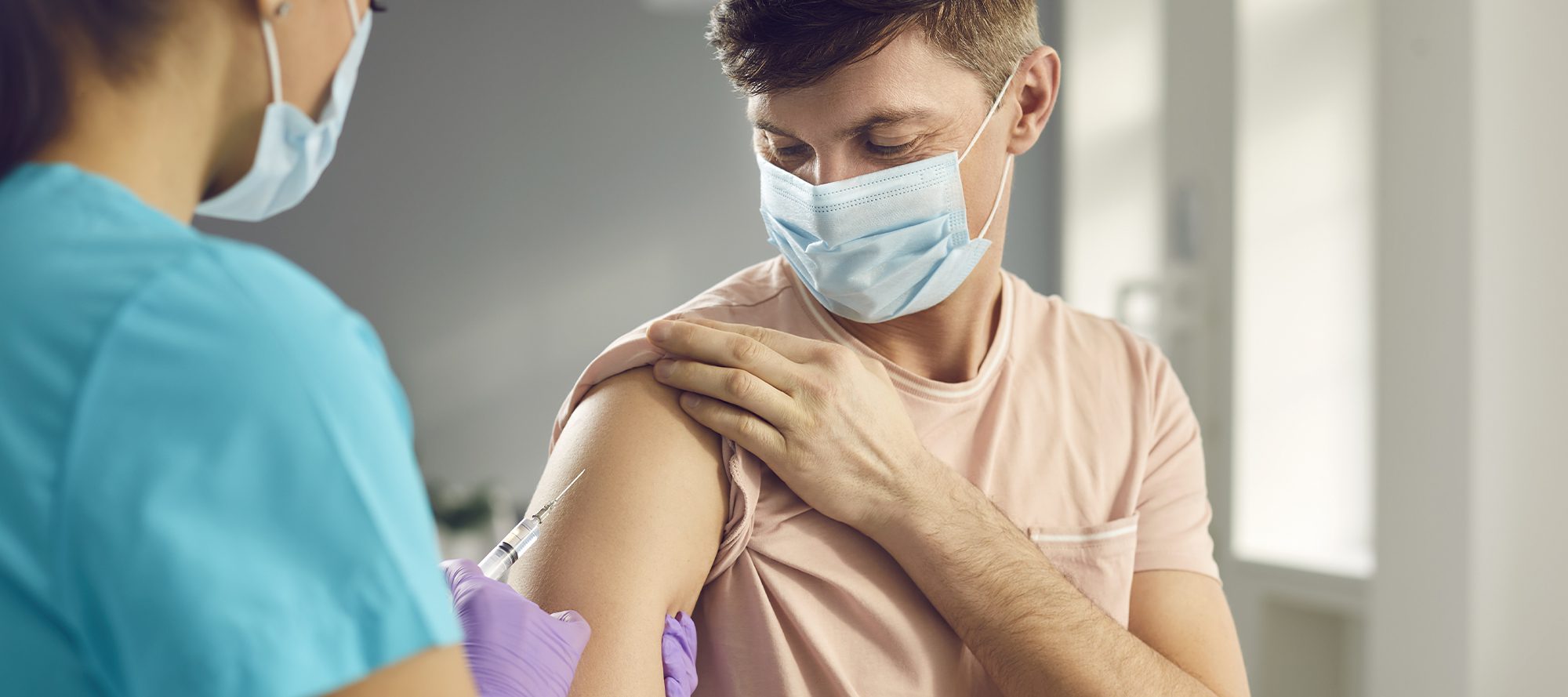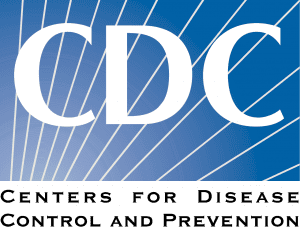Outbreak of SARS-CoV-2 Infections, Including COVID-19 Vaccine Breakthrough Infections, Associated with Large Public Gatherings — Barnstable County, Massachusetts, July 2021
In July 2021, following multiple large public events in a Barnstable County, Massachusetts, town, 469 COVID-19 cases were identified among Massachusetts residents who had traveled to the town during July 3–17; 346 (74%) occurred in fully vaccinated persons. Testing identified the Delta variant in 90% of specimens from 133 patients. Cycle threshold values were similar among specimens from patients who were fully vaccinated and those who were not. Jurisdictions might consider expanded prevention strategies, including universal masking in indoor public settings, particularly for large public gatherings that include travelers from many areas with differing levels of SARS-CoV-2 transmission.
Virological and serological kinetics of SARS-CoV-2 Delta variant vaccine-breakthrough infections: a multi-center cohort study
The authors conducted a multi-center retrospective cohort study of patients in Singapore who had received a licensed mRNA vaccine and been admitted to the hospital with B.1.617.2 SARS-CoV-2 infection. We compared the clinical features, virological and serological kinetics (anti-nucleocapsid, anti-spike, and surrogate virus neutralization titers) between fully vaccinated and unvaccinated individuals. Of 218 individuals with B.1.617.2 infection, 84 had received a mRNA vaccine of which 71 were fully vaccinated, 130 were unvaccinated and 4 received a non-mRNA. Despite significantly older age in the vaccine breakthrough group, the odds of severe COVID-19 requiring oxygen supplementation were significantly lower following vaccination (adjusted odds ratio 0.07 95%CI: 0.015-0.335, p=0.001). PCR cycle threshold (Ct) values were similar between both vaccinated and unvaccinated groups at diagnosis, but viral loads decreased faster in vaccinated individuals. Early, robust boosting of anti-spike protein antibodies was observed in vaccinated patients, however, these titers were significantly lower against B.1.617.2 as compared with the wild-type vaccine strain. The mRNA vaccines are highly effective at preventing symptomatic and severe COVID-19 associated with B.1.617.2 infection. Vaccination is associated with a faster decline in viral RNA load and robust serological response. Vaccination remains a key strategy for control of the COVID-19 pandemic.
Post-acute sequelae of SARS-CoV-2 infection and impact on quality of life 1-6 months after illness and association with initial symptom severity
Individuals with coronavirus disease 2019 (COVID-19) may have persistent symptoms following their acute illness. The prevalence and predictors of these symptoms, termed post-acute sequelae of SARS-CoV-2 (PASC), are not fully described. Participants discharged from an outpatient telemedicine program for COVID-19 were emailed a survey (1-6 months after discharge) about ongoing symptoms, acute illness severity, and quality of life. Standardized telemedicine notes from acute illness were used for covariates (comorbidities and provider-assessed symptom severity). Bivariate and multivariable analyses were performed to assess predictors of persistent symptoms. Two hundred and ninety patients completed the survey, of whom 115 (39.7%) reported persistent symptoms including fatigue (n= 59, 20.3%), dyspnea on exertion (n=41, 14.1%), and mental fog (n=39, 13.5%) among others. Proportion of persistent symptoms did not differ based on duration since illness (<90 days: n=32, 37.2% versus >90 days: n=80, 40.4%, p = 0.61). Predictors of persistent symptoms included provider-assessed moderate-severe illness (aOR 3.24, 95% CI 1.75, 6.02), female sex (aOR 1.99 95% 0.98, 4.04; >90 days out: aOR 2.24 95% CI 1.01, 4.95), and middle age (aOR 2.08 95% CI 1.07, 4.03). Common symptoms associated with reports of worse physical health included weakness, fatigue, myalgias, and mental fog. Symptoms following acute COVID-19 are common and may be predicted by factors during the acute phase of illness. Fatigue and neuropsychiatric symptoms figured prominently. Select symptoms seem to be particularly associated with perceptions of physical health following COVID-19 and warrant specific attention on future studies of PASC.
FDA EXPANDS AUTHORIZED USE OF REGEN-COV™ (CASIRIVIMAB AND IMDEVIMAB)
Regeneron Pharmaceuticals, Inc. today announced that the U.S. Food and Drug Administration (FDA) updated the Emergency Use Authorization (EUA) for the investigational COVID-19 antibody cocktail REGEN-COV™ (casirivimab and imdevimab). The authorization now includes post-exposure prophylaxis in people at high risk for progression to severe COVID-19, who are not fully vaccinated or are not expected to mount an adequate response to vaccination, and have been exposed to a SARS-CoV-2 infected individual, or who are at high risk of exposure to an infected individual because of infection occurring in the same institutional setting (such as in nursing homes or prisons). In those who require repeat dosing for ongoing exposure, REGEN-COV can also now be administered monthly. This new indication in people aged 12 and older is in addition to the previously granted authorization to treat non-hospitalized patients. REGEN-COV is not a substitute for vaccination against COVID-19 and is not authorized for pre-exposure prophylaxis to prevent COVID-19.
Subcutaneous REGEN-COV Antibody Combination to Prevent Covid-19
REGEN-COV (previously known as REGN-COV2), a combination of the monoclonal antibodies casirivimab and imdevimab, has been shown to significantly reduce the risk of hospitalization or death among high-risk patients persons with coronavirus disease 2019 (Covid-19). Whether subcutaneous REGEN-COV prevents severe acute respiratory syndrome coronavirus 2 (SARS-CoV-2) infection and subsequent Covid-19 in persons at high risk for infection because of household exposure to a person with SARS-CoV-2 infection is unknown. Authors randomly assigned, in a 1:1 ratio, participants (≥12 years of age) who were enrolled within 96 hours after a household contact received a diagnosis of SARS-CoV-2 infection to receive a total dose of 1200 mg of REGEN-COV or matching placebo administered using subcutaneous injection. At the time of randomization, participants were stratified according to the results of the local diagnostic assay for SARS-CoV-2 and according to age. The primary efficacy endpoint was the development of symptomatic SARS-CoV-2 infection through day 28 in participants who did not have SARS-COV-2 infection (as measured by reverse-transcriptase–quantitative polymerase-chain-reaction assay) or previous immunity (seronegativity). Symptomatic SARS-CoV-2 infection developed in 11 of 753 participants in the REGEN-COV group (1.5%) and 59 of 752 participants in the placebo group (7.8%) (relative risk reduction [1 minus the relative risk], 81.4%; P<0.001). In weeks 2 to 4, a total of 2 of 753 participants in the REGEN-COV group (0.3%) and 27 of 752 participants in the placebo group (3.6%) had symptomatic SARS-CoV-2 infection (relative risk reduction, 92.6%). REGEN-COV also prevented symptomatic and asymptomatic infections overall (relative risk reduction, 66.4%). Among symptomatic infected participants, the median time to resolution of symptoms was 2 weeks shorter with REGEN-COV than with placebo (1.2 weeks and 3.2 weeks, respectively), and the duration of a high viral load (>104copies per milliliter) was shorter (0.4 weeks and 1.3 weeks, respectively). No dose-limiting toxic effects of REGEN-COV were noted. Subcutaneous REGEN-COV prevented symptomatic Covid-19 and asymptomatic SARS-CoV-2 infection in previously uninfected household contacts of infected persons. Among the participants who became infected, REGEN-COV reduced the duration of symptomatic disease and the duration of a high viral load.
Neutralizing antibodies against SARS-CoV-2 variants induced by natural infection or vaccination: a systematic review and pooled meta-analysis
Recently emerged SARS-CoV-2 variants may pose a threat to immunity. A systematic landscape of neutralizing antibodies against emerging variants is needed. Authors systematically searched for studies that evaluated neutralizing antibodies titers induced by previous infection or vaccination against SARS-CoV-2 variants and collected individual data. The authors identified 106 studies meeting the eligibility criteria. Lineage B.1.351 (Beta), P.1 (Gamma), and B.1.617.2 (Delta) significantly escaped natural-infection-mediated neutralization, with an average of 4.1-fold (95% CI: 3.6-4.7), 1.8-fold (1.4-2.4), and 3.2-fold (2.4-4.1) reduction in infectious virus neutralization assay, while neutralizing titers against B.1.1.7 decreased slightly (1.4-fold, 95%CI: 1.2-1.6). Serum from vaccinees also led to significant reductions in the neutralization of B.1.351 across different platforms, with an average of 7.1-fold (5.5-9.0) for non-replicating vector platforms, 4.1-fold (3.7-4.4) for mRNA platform, and 2.5-fold (1.7-2.9) for protein subunit platform. Neutralizing antibodies levels induced by mRNA vaccines against SARS-CoV-2 variants were similar, or higher than those derived from naturally infected individuals.
Association of Remdesivir Treatment With Survival and Length of Hospital Stay Among US Veterans Hospitalized With COVID-19
The question addressed in this study is remdesivir treatment associated with improved survival or shortened hospitalizations among people with COVID-19 in routine care settings? In this cohort study of 2344 US veterans hospitalized with COVID-19, remdesivir therapy was not associated with improved 30-day survival but was associated with a significant increase in median time to hospital discharge. The findings suggest that routine use of remdesivir may be associated with increased use of hospital beds but not with improvements in survival.
Situation Dashboards



World Health Organization (WHO)


Johns Hopkins University (JHU)


COVID-19 in US and Canada







